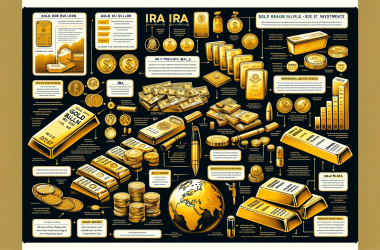Retirement is a time for relaxation, travel, and pursuing hobbies, but it can also come with its fair share of financial concerns. One of the biggest worries for retirees is managing debt during their golden years. Carrying debt into retirement can put a damper on your newfound freedom, but fear not—we’re here to guide you through the process of becoming debt-free in retirement.
The Impact of Debt in Retirement
Debt in retirement can cast a shadow over your well-deserved break from the working world. Let’s explore why it’s crucial to address debt as you plan for your retirement.
Reduced Financial Flexibility
Debt payments eat into your retirement income, reducing the funds available for enjoying life to the fullest.
Increased Stress
Debt can cause anxiety and sleepless nights. It’s tough to savor your retirement when you’re constantly worrying about bills.
Risk of Outliving Savings
The longer you carry debt, the harder it is to make your savings last throughout your retirement years.
Assessing Your Debt Situation
Before you can tackle your debt, you need to know where you stand. Here’s how to get started:
- Make a List: Create a comprehensive list of all your debts, including mortgages, credit card balances, car loans, and any other outstanding loans.
- Check Interest Rates: Note the interest rates on each debt. Prioritize those with the highest rates as they cost you the most in the long run.
Now that you have a clear picture of your debts, it’s time to make a plan.
Creating a Debt Repayment Plan
A debt repayment plan tailored to your unique situation is essential. Here’s how to get started:
- Prioritize High-Interest Debts: Attack high-interest debts first. The less interest you pay, the more you save.
- Set Realistic Goals: Establish achievable milestones for debt reduction, such as paying off a specific amount in a set timeframe.
- Create a Timeline: Outline a timeline for paying off each debt. A visual schedule can be a powerful motivator.
Budgeting and Lifestyle Adjustments
To allocate more funds toward debt repayment, consider these strategies:
Cut Unnecessary Expenses
Review your monthly expenses and identify areas where you can cut back. Skip that daily latte and dine out less frequently.
Downsize Your Lifestyle
If possible, downsize your home to reduce housing expenses. Consider selling a second car if you can manage with just one.
Utilizing Retirement Assets
Your retirement accounts, such as 401(k)s and IRAs, can help you become debt-free:
- 401(k) Loans: While generally not recommended, a 401(k) loan can be a short-term solution to pay off high-interest debt. Be cautious, as there are risks involved.
- Roth IRA Withdrawals: Roth IRAs allow penalty-free withdrawals of contributions, which can be used to pay off debt. However, this should be a last resort.
Seeking Professional Guidance
Don’t hesitate to consult a financial advisor or credit counselor with expertise in retirement planning and debt management. Their insights can be invaluable in creating a successful debt repayment strategy tailored to your unique situation. Consider reaching out to TruNorth Advisors in Greenville, SC for assistance.
Avoiding Common Debt Traps
In retirement, it’s crucial to avoid common pitfalls:
Taking on New Debt
Resist the temptation to take on new debt, such as loans for luxury purchases.
Falling for Scams
Be wary of financial scams targeting retirees. Always verify the legitimacy of financial opportunities.
Monitoring Progress
Your debt repayment plan isn’t set in stone. It should adapt to changes in your circumstances. Periodically review your debt repayment plan to ensure it aligns with your current financial situation.
Maintaining a Debt-Free Retirement
Congratulations on achieving a debt-free retirement! Now that you’ve reached this milestone, it’s essential to maintain your financial stability and continue enjoying your retirement years to the fullest. Here’s how to do it:
Stick to a Budget
A well-structured budget is your best friend in retirement. It ensures you’re in control of your finances and can enjoy peace of mind. Here are some tips for creating and sticking to a budget:
1. Track Your Expenses
Start by tracking all your expenses for a few months to get a clear picture of where your money is going. This will help you identify areas where you can make adjustments.
2. Create a Detailed Budget
Based on your expense tracking, create a comprehensive budget that includes all your regular expenses, such as housing, utilities, groceries, and healthcare. Don’t forget to include discretionary spending for entertainment and leisure activities.
3. Set Realistic Goals
Determine your financial goals for retirement, whether it’s maintaining a certain standard of living, saving for a dream vacation, or leaving a legacy for your loved ones. Your budget should align with these goals.
4. Prioritize Saving and Investing
Allocate a portion of your budget to savings and investments. Continue contributing to retirement accounts if applicable and consider diversifying your investments to protect your wealth.
5. Emergency Fund
Maintain an emergency fund to cover unexpected expenses, such as medical bills or home repairs. Aim for at least three to six months’ worth of living expenses.
6. Review and Adjust Regularly
Your budget isn’t set in stone. Regularly review your spending and make adjustments as needed. Life circumstances can change, so your budget should be flexible.
7. Use Budgeting Tools
Consider using budgeting apps or software to simplify the budgeting process. These tools can help you track expenses, set goals, and stay organized.
Avoid New Debt
To stay debt-free in retirement, it’s crucial to avoid taking on new debt. Here’s how to protect yourself:
1. Think Before You Borrow
Before taking out any new loans or credit cards, carefully evaluate whether it’s a necessity. Avoid financing discretionary purchases whenever possible.
2. Emergency Fund
Your emergency fund can be your first line of defense against unexpected expenses, reducing the need to rely on credit.
3. Credit Card Management
If you use credit cards, pay off the balance in full each month to avoid accruing high-interest debt. Consider using cash or debit cards for budgeted expenses.
4. Financial Discipline
Maintain the financial discipline that got you to a debt-free retirement in the first place. Stick to your budget, even when faced with tempting offers or sales.
5. Consult with Financial Advisor
If you’re uncertain about major financial decisions, seek guidance from a financial advisor. They can provide valuable insights and help you make informed choices.
Enjoy Your Retirement
Lastly, don’t forget to enjoy your retirement to the fullest! Your hard work and commitment to a debt-free life have earned you the freedom to pursue your passions and spend quality time with loved ones. Travel, pursue hobbies, and create lasting memories without the burden of debt hanging over you.
Maintaining a debt-free retirement is not only achievable but also liberating. By adhering to a well-structured budget, avoiding new debt, and continuing to make prudent financial decisions, you can secure your financial future and savor every moment of your retirement journey. Here’s to a debt-free, fulfilling, and worry-free retirement ahead!










